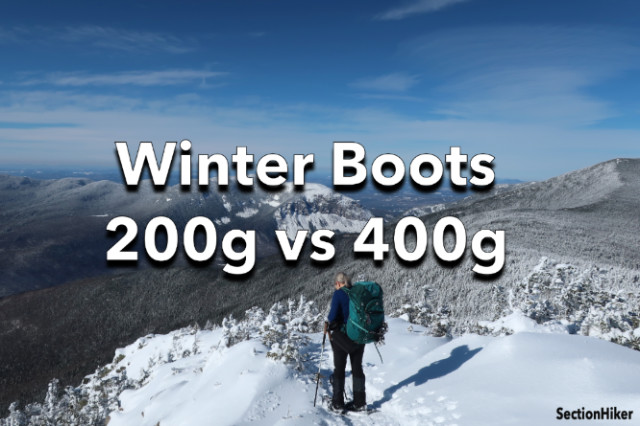[ad_1]

Winter boots are normally insulated with 200g or 400g artificial insulation which could be very skinny however heat. The insulation varies however is normally Thinsulate, Primaloft, or a comparable artificial fill or fiber. As well as, winter boots are virtually all the time waterproof with waterproof/breathable liners, permitting them for use in rain and in mud in addition to on frozen surfaces.
Whereas it’s complicated, the 200g and 400g measures don’t replicate the burden of the insulation in grams within the boots, however its thickness. For instance, a 200g Thinsulate insulated boot doesn’t have 200 grams of insulation (which might make the boots fairly heavy) however comprises insulation that weighs 200 grams per sq. meter. A sq. meter is over 10.7 sq. toes, which is much bigger than the quantity of insulation contained in a single boot or a pair of insulated boots.
A 400g insulated winter boot is twice as heat as a 200g boot, which means that it traps twice as a lot of the physique warmth produced by your toes and decrease legs. When it comes to temperature, a 200g insulated winter boot will hold your toes heat right down to about 0-10 levels (F), whereas a 400g winter boot will hold them heat right down to -20 levels (F) and presumably decrease. Usually talking, you may put on a pair of 200g winter boots in 20-30 diploma Fahrenheit temperatures fairly comfortably. This makes them a pretty footwear possibility for climbing in colder autumn temperatures earlier than the snow has fallen. Notice: All winter boot temperature scores assume you’re strolling briskly and never standing round.
One other key distinction between 200g and 400g winter boots is how excessive they lengthen up your leg. Most 200g winter boots are over-the-ankle, so-called”Mid” top, whereas 400g winter boots lengthen greater up your leg to mid-calf. This lets them retain extra physique warmth, so your toes keep hotter. There are just a few exceptions to this, however that’s the norm.
Really useful 200g and 400g winter boots (2023-2024)
Winter Footwear Programs
In case you’re planning on climbing or snowshoeing in winter, it’s essential to comprehend that insulated boots are actually only one a part of the multi-part winter footwear system. You’ll additionally wish to put on:
- a pair of heat socks
- gaiters
- insulated insoles
- winter traction gadgets like microspikes, crampons, or snowshoes
Winter Socks
Completely different individuals have completely different preferences in relation to winter socks; some prefer to put on sock liners along with a heat sock, whereas others favor a single sock. We like Darn Powerful’s merino wool hiker boot socks, that are very heat. Whichever you select, make certain your boots aren’t too tight and that you would be able to nonetheless wiggle your toes inside them. Your toes will keep hotter in case you preserve good circulation to your toes. As well as, in case you plan on utilizing toe heaters, it goes with out saying that you simply’ll want inner area for them too.
Excessive Gaiters
In case you plan to snowshoe or hike in reasonably deep snow, a excessive gaiter that reaches near your knees is advisable. Gaiters forestall snow from getting your socks moist they usually present some extra insulation for decrease legs, trapping heat air and blocking wind. Most insulated winter boots supposed for climbing even have a hoop on the base of their laces that you would be able to hook a gaiter so it doesn’t journey up your leg. Outside Analysis Crocodiles are by far the preferred excessive gaiter utilized by winter hikers and we use them ourselves.
Insulated Insoles
Some winter boot producers like Oboz, embody reflective insoles (additionally bought individually) coated with a mirrored substance that displays foot heat again to your toes. Alternatively, you should purchase wool-covered insoles which may make your boots really feel a lot hotter and assist cover odors. They work properly in ski boots too.
See additionally:
SectionHiker is reader-supported. We solely become profitable if you buy a product via our affiliate hyperlinks. Assist us proceed to check and write unsponsored and unbiased gear evaluations, newbie FAQs, and free climbing guides.
[ad_2]

